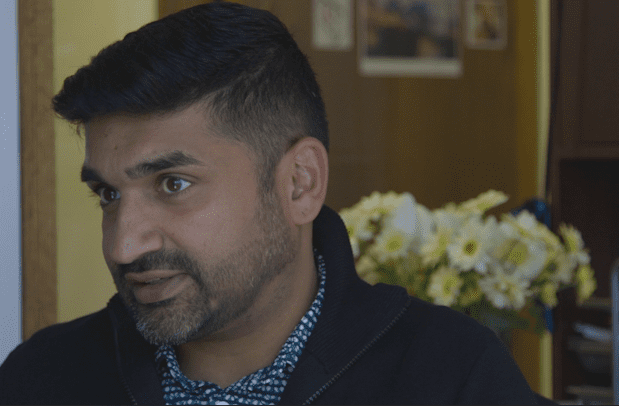Since the start, Toronto’s LGBTQ2 communities have been at the centre of the search for missing men in the gay village. For years, it was members of these communities that urged police to investigate what they believed was a case of serial killings targeting gay men. When police later admitted there was a murderer responsible for the disappearance of gay men in Toronto and ultimately charged 67-year-old Bruce McArthur with eight counts of first-degree murder, members of these communities rallied together — to mourn, and to hold institutions accountable.
Now, McArthur has pleaded guilty to all eight murder charges. But LGBTQ2 community leaders continue to fight for justice.
Among those leaders is Haran Vijayanathan, executive director of the Alliance for South Asian AIDS Prevention (ASAAP). Vijayanathan spoke to Xtra following McArthur’s appearance in court on Tuesday.
Interview has been condensed and edited for clarity.
On McArthur’s guilty plea:
“Now that we actually have a guilty plea and sentencing is going to happen, we’re okay knowing that they’ve caught the right person and that the right person is going away. For the families, it’s important because they don’t have to go through the long drawn-out process [of a trial]. The community doesn’t have to go through that process, either.
There are a lot of questions around the whats and the whys of the case. At the end of the day, we’ll know what we all know, and there are other things that we’ll never know.”
On communities and partnerships:
“We [need to] actually start paying attention to LGBTQ2S communities. When something happens in one community, it will definitely impact another community within our broader [LGBTQ2] communit[ies].
There’s a strong opportunity to hold systems that are supposed to be protecting us accountable and find ways to ensure that this doesn’t happen again. And that’s going to have to happen through building bridges and offering education.
This experience has been really good in terms of working with detectives. For ASAAP, it has really built a bridge with Danielle Bottineau [LGBT liaison officer for the Toronto Police Service], to really look at diversifying the communities that they work in and they operate in.
There has certainly been a lot more exposure to different community groups and the different community feelings that exist out there. I think there is an awareness that there needs to be a lot more communication and really open, transparent communication.
The community, especially the victims’ families, and the police got along really well is because there is an open, transparent communication that happened that didn’t happen before the men went missing. Even with Tess Richey [who went missing the Toronto’s gay village] or Alloura Wells [a trans woman murdered in Toronto], there wasn’t any communication. We just need to find ways to build and [create] systemic changes.”
On the independent review of the Toronto police handling of missing persons:
“There’s a real opportunity there to make a systemic change and an impact. The [review should] look at how to work with racialized communities, the homeless and trans communities. [The police shouldn’t just work with the] folks who say, “I love the police and they’re doing everything great.” [They need to] listen to those people who say, “You know what? I really don’t like the police and I can’t trust them.”
I think community policing needs to be the priority, not policing the community. That means actual engagement — having conversations, not creating dubsmashes [on social media] or going to play basketball [with community members].
We just need to keep putting the pressure on on our end to make that happen.”
As told to Riley Sparks.

 Why you can trust Xtra
Why you can trust Xtra


